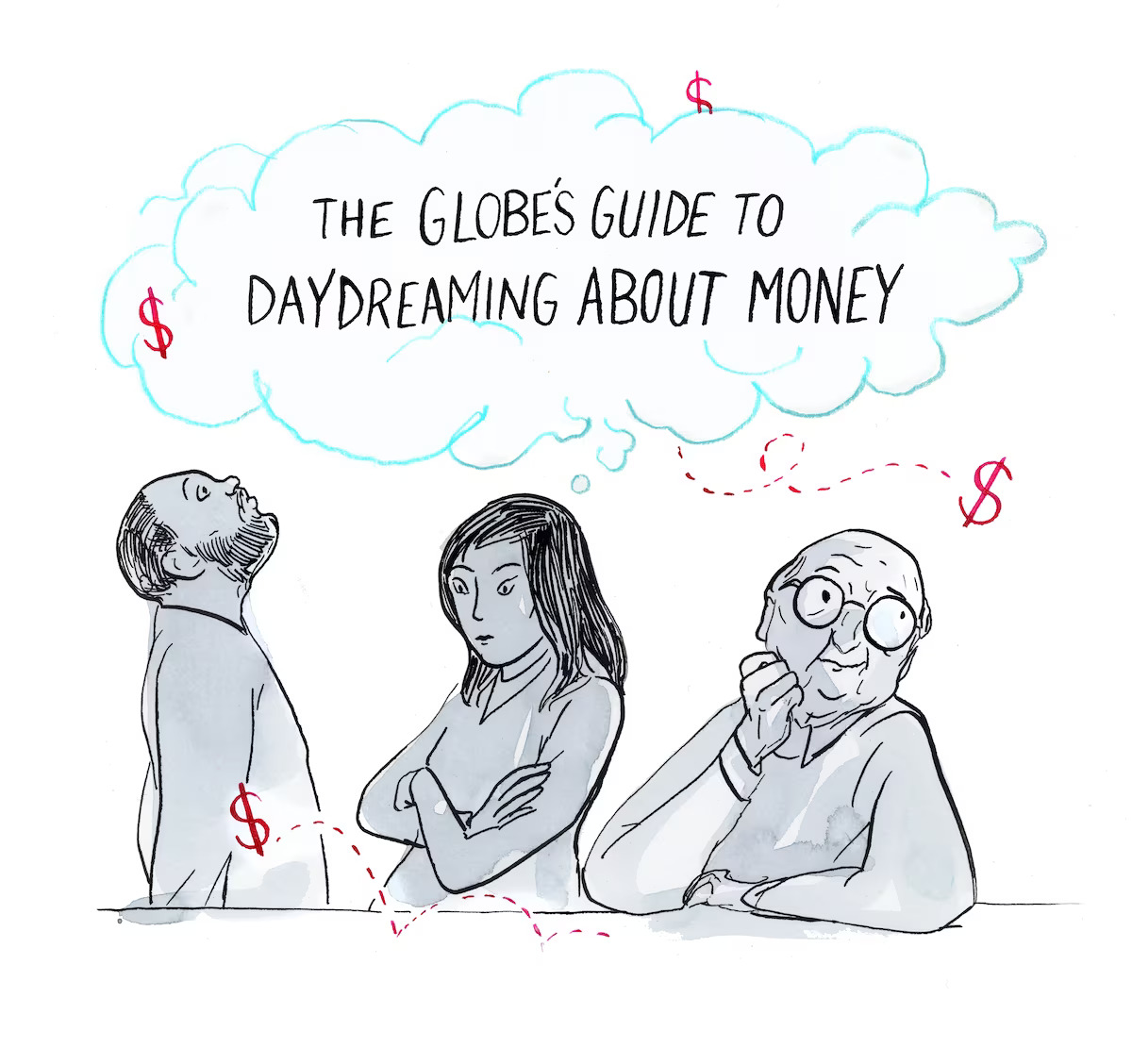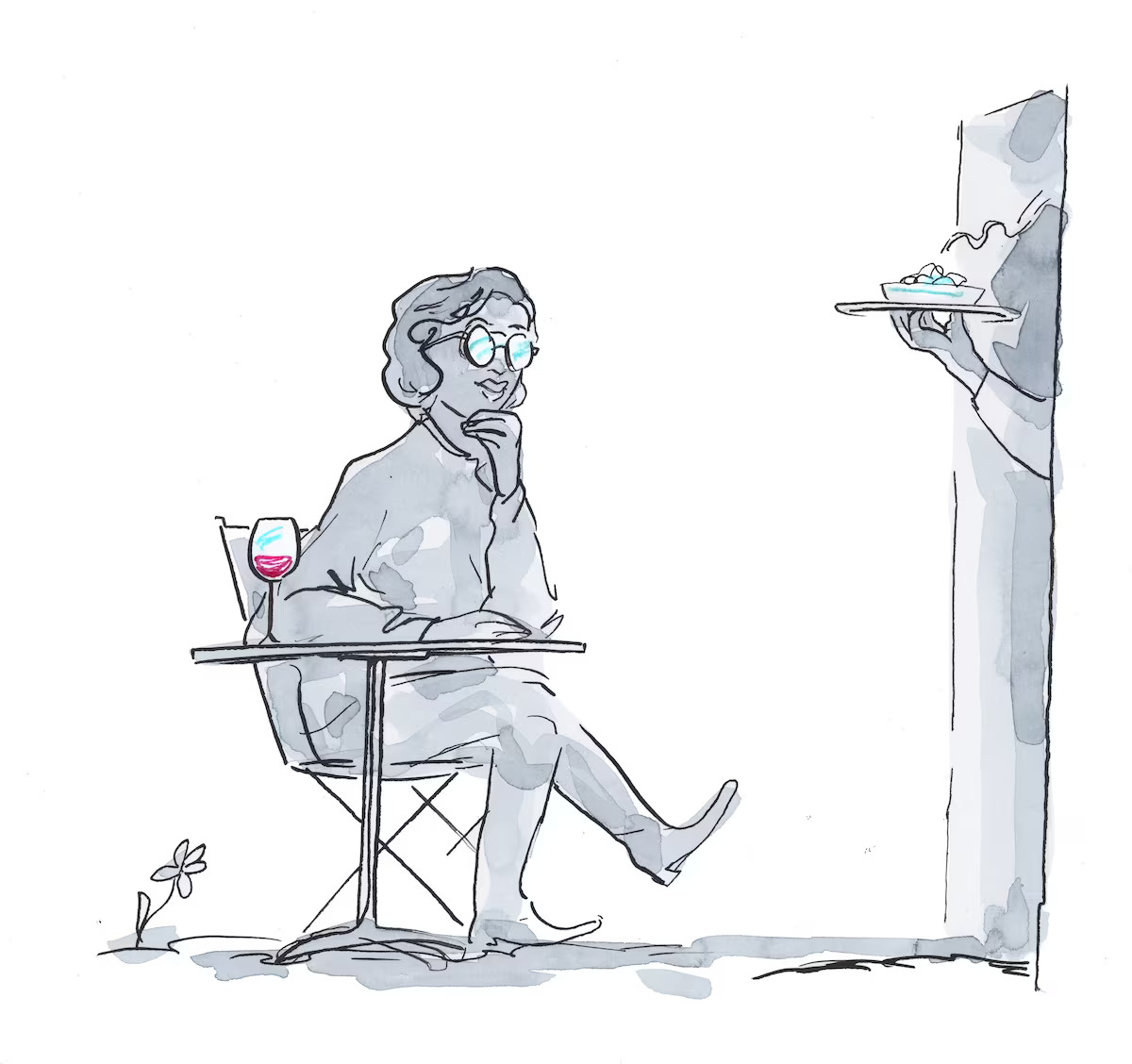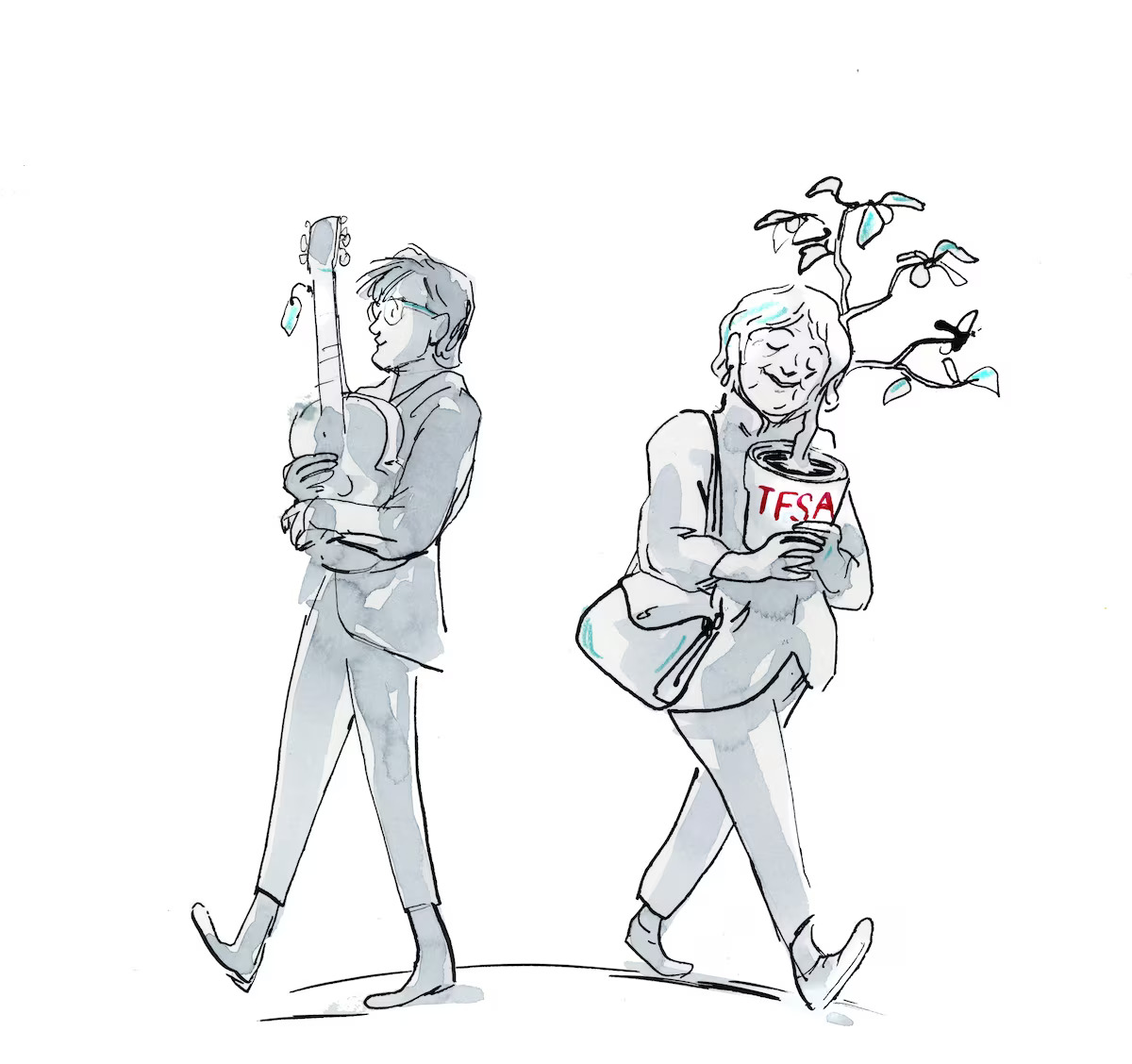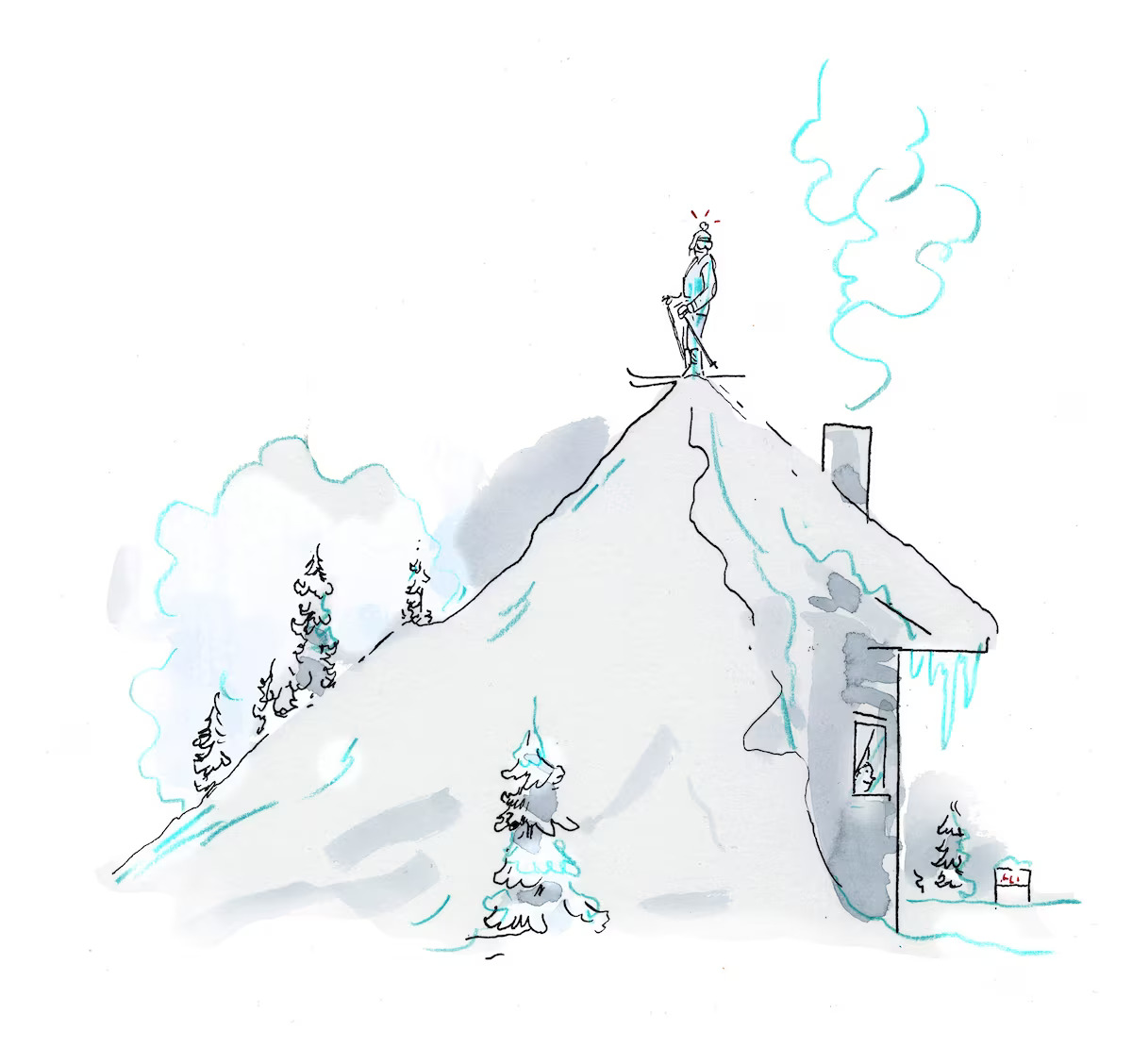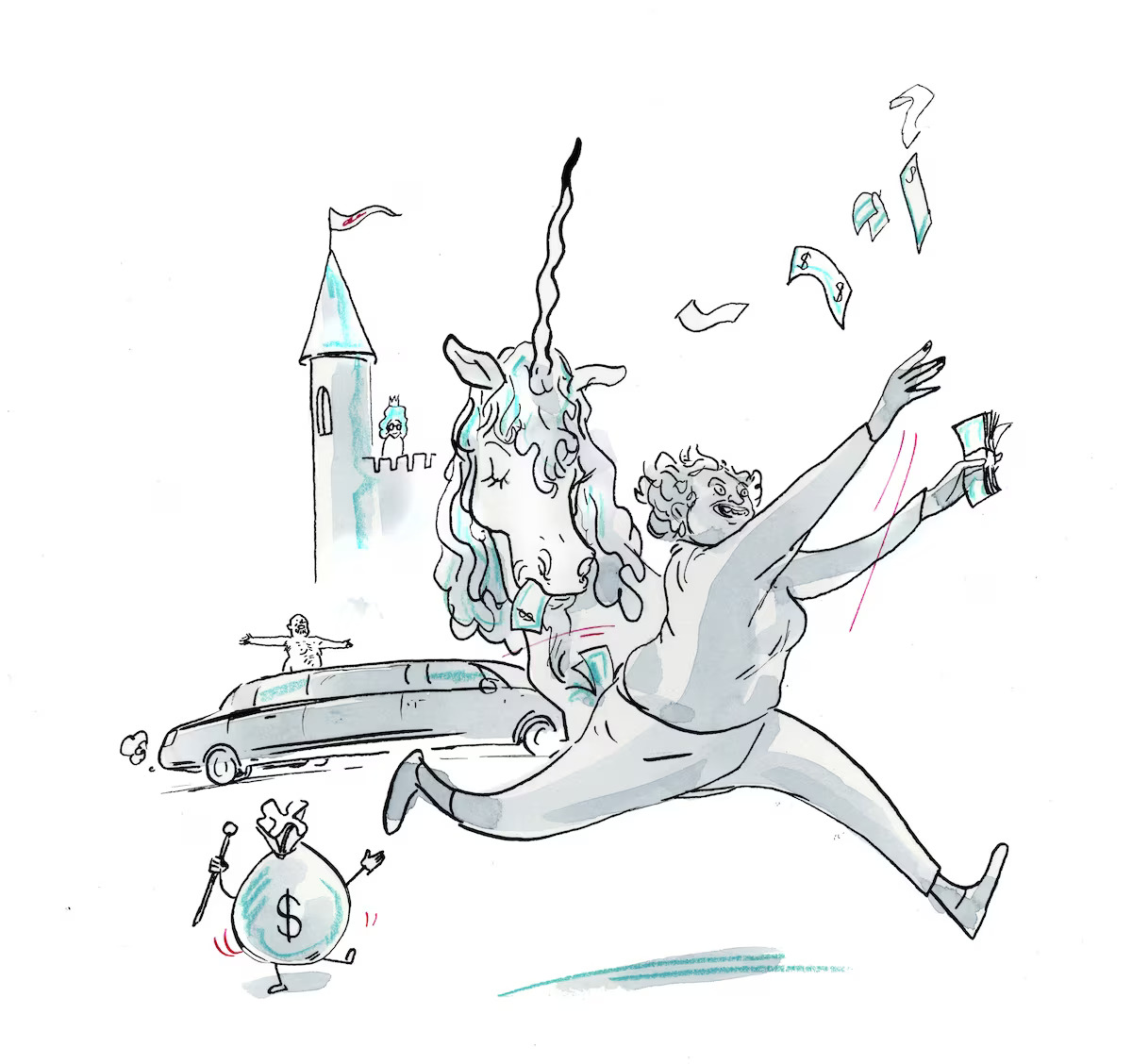How would landing an unexpected bit of cash change your life? It’s not a bad idea to plan for a windfall
We’ve all thought about it: How would landing a bit of unexpected cash change our lives? Could a million dollars buy an early retirement and the car you always wanted? Could $10,000 allow you to buy a house now instead of a year down the road? Should you put $100 in a savings account or toward a fancy dinner?
Clay Gillespie, managing director of RGF Integrated Wealth Management, had that exact conversation with his wife days before I called him up for this story. He was surprised how differently they would act if a bunch of money fell into their lap.
“She was thinking we could buy a new house, we could travel here, it was all lifestyle enhancements. Mine was: Can’t we just implement our original plan quicker?” said Mr. Gillespie, who said any lifestyle enhancements become tricky to maintain down the road.
“My answers aren’t much fun, I appreciate that.”
It may seem like just a thought experiment to imagine about what you’d do with an unexpected lump sum, but the thing is, it does happen. Evan Parubets, head of the advisory services team at Steadyhand Investments, says a handful of clients come to his company every year to ask what they should do with money that fell into their laps, whether it was a surprise inheritance from a distant relative or a five-figure work bonus they didn’t see coming.
“I had someone just last week who was retiring and unbeknownst to them, they got a $35,000 retirement bonus,” Mr. Parubets said.
Given current demographic trends, planning for lump sums isn’t just a hypothetical exercise for many people. One projection from CPA Canada estimates that $1-trillion of wealth transfers will pass from baby boomers to Gen Xers and millennials from 2023 to 2026 – in what would be the largest generational transfer in Canadian history.
So we decided to do a bit of daydreaming and spoke with Mr. Gillespie and Mr. Parubets to come up with the best uses of unexpected cash from $100 to $1-million. For the purpose of this exercise, we assumed each cash amount would be tax-free and that it couldn’t be used toward debt.
I asked some of my friends what they would do to see how the experts’ advice compares. And to get some more comparisons, I also asked older folks what they’d do in their stage of life.
To bring you back down to earth for a second: Outstanding debt is the first thing you should tackle if you come into a large sum of money. As Mr. Gillespie said, money like this should be used to accelerate your life goals, rather than expand your life in an unsustainable way.
$100
Cynthia Jutras (26-year-old Vancouver renter, with aspirations to buy a condo one day):
A hundred bucks just isn’t enough money for Ms. Jutras to feel compelled to save or invest any of it, and she doesn’t feel the need to think too hard about using it for the long term.
Instead, she’d use the money to rent a car for the day to do some adventuring in the mountains. Since she doesn’t own a car, it’s a luxury and the money would be well spent toward it.
Anisa Shere (62-year-old, retired and splitting her time between Mississauga and central Ontario):
Ms. Shere, who happens to be my aunt, is frankly a little disappointed that I gave her the smallest sum of money.
She says she’d give $10 or $20 to my grandmother, who regularly collects for charity, and spend the rest on going out for dinner.
“A hundred dollars doesn’t get you much these days,” she said.
The experts:
“Just have fun with it,” Mr. Parubets said.
He says it’s a sum so small that it doesn’t have any real impact on your financial goals. Plus, many financial institutions have minimum investment amounts, which means new investors would be limited in terms of what kinds of financial products they can buy.
For the record: He says he’d buy his wife flowers with the money.
Mr. Gillespie says he’d go out for dinner, but for people who are hell-bent on kick-starting their investing life, the two advisers suggest online investment platforms such as Wealthsimple, which has no minimum balance for its accounts.
$1,000
Karl Rukavina (28-year-old Toronto renter, who is transitioning out of a career as a restaurant manager and would like to one day buy a house outside the city):
“The old me would have gone out and spent it in five seconds,” Mr. Rukavina joked.
“The new mature me that’s unemployed would probably save and spend around 50/50.”
He would probably put half in his tax-free savings account (TFSA), where it would go into a medium-risk mutual fund
As a fan of music and natural wine, he said he’d spend the other $500 on a new guitar or some select bottles.
Anita Jeffery (a 70-year-old retiree in Toronto):
Ms. Jeffery says she’d put the entire $1,000 straight into her TFSA. Her expenses are never higher than her pension income, so she doesn’t feel the need to spend any of the money. Her TFSA is used as a lifetime savings account, and she doesn’t expect to use it any time soon.
Instead, she expects to eventually leave her TFSA behind for the benefit of her grandchildren.
The experts:
This is a bit more of a significant sum, especially for young people.
Mr. Parubets says anyone who wants to treat themselves should take out a couple of hundred bucks for fun, and put the rest in a registered retirement savings plan or a TFSA.
He says people who are starting out their investing journey shouldn’t sweat the financial product they buy within those accounts. That’s because when the sum is this little, creating good savings habits has a much larger effect than any successful investment product.
Here’s a possibly unpopular opinion from Mr. Gillespie: if you have no debt and you feel the urge to spend all the money, go ahead and do it. Or put it toward a larger expense in the future, such as a vacation fund.
$10,000
Matias Olivares (34-old engineer in Rossland, B.C., who is actively looking to buy a home):
Mr. Olivares, who lives in a ski town, says he would set aside $500 to help with purchasing next year’s season pass at his local resort.
He’d also put $2,500 toward a fun summer trip, either to travel in Europe again, or to visit his family in Chile.
He’d like to use the remaining $7,000 to top up his first home savings account (FHSA) to its yearly contribution limit of $8,000. However, he’d first put it in a TFSA, just in case some sort of emergency came up that his emergency fund couldn’t cover. Then he’d transfer the money to his FHSA before the end of 2024. He says he’s happy with this strategy because he invests in the same exchange-traded funds in both accounts.
Friba Bastan (a 50-year-old hairstylist in Mississauga):
Ms. Bastan says she currently relies on an old car that could stop working any day.
For her, the best use of $10,000 would be to put it toward a newer car that can reliably take her back and forth between work and avoid hefty bills down the road.
The experts:
At this amount, not much changes in terms of how Mr. Parubets would approach spending versus saving. He would still recommend treating yourself with roughly 20 per cent of the money and investing the rest.
The big difference with this amount is that the kind of savings account the money goes into can have a substantial effect years later.
If you’re looking to buy a home in the near future, Mr. Parubets says you should use an FHSA and buy a guaranteed investment certificate. The FHSA is a great option because it combines the TFSA’s benefit of tax-free withdrawals and an RRSP’s perk of having contributions deducted from your income tax.
Meanwhile, GICs still offer very competitive rates of more than 5 per cent at many institutions for one year. It’s an ideal way to get guaranteed returns and a bump in your tax return, while not risking losses in the near term if the perfect house comes up and you need to access the money.
If you want a bit more flexibility around what your savings will eventually be used for, a TFSA might be the best vessel.
If you’re investing for the long term, I asked Mr. Gillespie whether it’s worth buying some high-risk assets, such as speculative stocks or cryptocurrencies, since this is effectively free money.
“A dollar is a dollar,” was Mr. Gillespie’s answer.
“And what I mean by that … is if you don’t care about losing the money, you might as well spend it on fun.”
$100,000
Juliette Recompsat, a 36-year-old communications professional in Rossland, B.C., who owns her home:
The first thing that comes to Ms. Recompsat’s mind is buying a very fancy costume for her adolescent dog, Mango. She says she’d throw a solid $1,000 toward that.
Then, her plans pretty much echo Mr. Gillespie and Mr. Parubets’s advice. She’d put around $85,000 toward upgrading her house – especially with environmentally conscious additions such as solar panels and a heat-pump air conditioning system.
“There are so many grants right now and I feel like they’re not going to be around forever,” she said.
The remaining $14,000 would be put toward a fully paid vacation to bring together her immediate family, which is spread across Vancouver, Calgary and Canmore, Alta.
David Finlay (85-year-old retiree who lives with his 82-year-old wife in Coquitlam, B.C.):
Mr. Finlay admitted he’s being “devilish” by including this, but he says he’d start by buying his wife a diamond ring for roughly $10,000.
Then he’d give $15,000 to his two grandchildren to either save, invest or buy something of their choice.
“If, by chance, they were to lose all of it, it would be a good life lesson,” he said.
Then he’d split the remaining amount, roughly $65,000, between his two children to do what they think is best with the money.
“Nobody gets rich but this could help everybody get some breathing room,” Mr. Finlay said. “I would ask each of them to think of their favourite charity as well.”
The experts:
This is a whole other class of money, and Mr. Gillespie and Mr. Parubets say it’s no longer about what kind of stock you buy or what kind of investment account you open. This amount represents a chance to leapfrog over major financial milestones.
One area both of them agree on is housing. If you already own a house, this could be a great opportunity to do the renovation you always planned. It might sound like a frivolous purchase at first, but Mr. Parubets says it will greatly improve your home’s value, making it a sound long-term investment that also improves your quality of life.
If you can handle the costs, putting the money toward a cottage could be a good idea, Mr. Gillespie says. Again, it’s a sound investment in property, as long as you account for the added expenses around taxes and upkeep.
Lastly, if you don’t own a home, this is a way to get into the market. Even if you were already saving for a down payment, this extra money could greatly reduce your mortgage payments.
The main thing is that you’re moving forward in your financial life with these expenses.
“What you don’t want people to do is spend for the sake of spending, like on a Ferrari,” Mr. Gillespie said. “You want them to buy something that’ll be part of their lifestyle forever.”
$1,000,000
Me, a 27-year-old journalist nursing my first mortgage in a small B.C. town:
Two things crossed my mind immediately.
First, could I retire right away and live off the investment returns and some relaxing part-time work? The second thought was, if I didn’t do that, could I spend around $200,000 on a really nice car and other luxurious splurges before getting to serious business such as buying a house and making investments?
Let’s start with the first thought. Mr Parubets says you could estimate an after-tax income of $40,000 per year on your investments if you put all of the $1-million into investments. When it comes down to it, that’s not really enough to get by, especially when I have a mortgage to pay.
So, I tell Mr. Parubets about my second plan.
Regrettably, I am a car person, so I’d like to spend $100,000 on the car of my dreams. Then, I’d like to splurge on another $100,000. I enjoy rugged travel, so I think $40,000 could buy me about a year tripping around the world in places such as Central Asia, Eastern Europe, West Africa and Patagonia. I’d spend another $30,000 on a family experience – perhaps a family trip such as the one my friend Ms. Recompsat mentioned. And then I’d spend $30,000 on replacing all the Ikea furniture in my house with some nice pieces.
Now, to the more responsible choices. In my town, $600,000 can pay for about 80 per cent of a really nice two- or three-bedroom house, so I’d use that for a down payment and take on a very small mortgage. I’d keep my current one-bedroom condo as an investment property.
That leaves me with $200,000. I’ve dramatically underused my TFSA and RRSP, so I could put about $100,000 total into those accounts. I don’t plan to have kids, so I’d probably use the remaining $100,000 to help out my family.
All in all, the reduced mortgage and increased investments would reduce my living costs while putting me solidly on the road to retirement. So, I’d probably reduce my working hours or start freelancing very occasionally. The one gripe Mr. Parubets has with my idea is how much I plan to splurge.
“When you said $200,000, my honest reaction was to cringe,” said Mr. Parubets, who added that I need to fully consider the consequences of spending all that money when it could grow for decades and enhance my life down the road.
But hey, like you, I’m here to daydream.
Nabila Shere (my mother, 60 years old and currently “semi-retired” in Mississauga):
My mom, bless her heart, started off by deciding how much money she’d pass on to me and my sister.
She settled on $200,000 for me and $300,000 for my sister, who’s older than me. Mom’s reason for the difference? My sister lives in Sydney, Australia, which has a much more expensive real estate market than my small B.C. town.
Like any good younger brother, I can’t stand for this kind of injustice, and I talked mom down to giving us both $250,000.
With that out of the way, she says she’d use another $70,000 to buy an electric car. She currently has an old Mazda hatchback that’s falling apart, and has wanted something more eco-friendly and reliable for a long time.
Then, she’d probably put $250,000 into various tax-sheltered savings accounts to max them out. She has found her stock portfolio to be quite successful, and would put most of the money into more equities.
She says she has otherwise lived a fairly frugal life, so she’d use the rest to treat herself: vacations, trying new cuisines and other luxuries. “Of course, I’d keep some aside for charity and helping out family,” she adds.
The experts:
We’re now into lottery money, and the experts are quick to point out those stories about lottery winners eventually going bankrupt.
When Mr. Gillespie has clients come in with large sums of money, he tries to steer them into investments immediately to prevent them from spending too much money and having a sense of lifestyle ingrained in them.
But that doesn’t mean you can’t spend some of it.
“Have some fun, but don’t do anything stupid,” said Mr. Gillespie, who said splurging with $100,000 is fine as long as you have a sound plan for the rest of the money.
When it comes to how you use the rest, Mr. Parubets says the decision largely depends on your age.
If you’re young and don’t own a home already, buying one either clear of a mortgage or with a very small mortgage could be a massive jump start in your life. Not only is it a great investment in property, it’ll also substantially reduce your living costs for years to come.
On the other hand, a mid-career person could start to look at early retirement. Mr Parubets says it is important to still let that money sit in an investment account for some years to maximize the gains and have the largest impact once you are finally retired.
Lastly, if you’re an elderly parent with your retirement sorted out, you could look at gifting that money to your kids. Mr. Parubets says buying assets of some sort or gifting a house for your children is the best way to do this and ensure the money will not be misused.
SALMAAN FAROOQUI
The Globe and Mail, February 17, 2024

